Islamic Centre is a beacon for Grenfell community
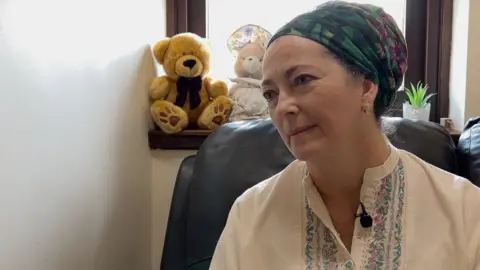 BBC
BBCAl-manaar means "the lighthouse" in Arabic - and for many in the North Kensington community in west London, the Al-Manaar Islamic Centre has felt like a beacon of light through years of grief, isolation and mistrust of authority.
The Grenfell Tower fire in 2017 killed 72 people and has had a lasting effect.
Over the last seven years, the centre in Westbourne Park has seen up to 50 adults and children each week for counselling.
"Some of the children we see have lost loved ones or have grown up in a home which has been directly affected," said Rachel Abedi.
She is a child and adult psychotherapist providing support to some of the 15 to 20 children the service sees per week.
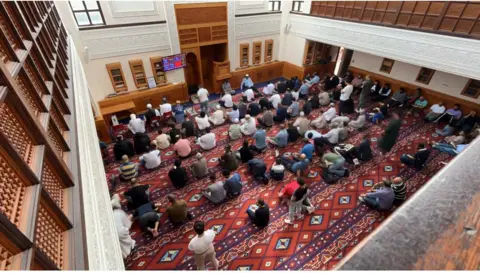
As the Grenfell Inquiry comes to a close this week, the centre's therapists expect to be particularly busy.
"Seeing images of the fire is really triggering, and not just of the Grenfell fire, but other similar fires. We do expect to be in demand," Ms Abedi said.
Up to 80% of those who died during the Grenfell fire identified as Muslim.
'Faith sensitive'
A report earlier this year by the Cambridge-based Woolf Institute found that mental health provision is failing Muslims because the NHS has "a lack of specialised services that are culturally and religiously appropriate".
The service at Al Manaar is "faith sensitive".
"Many families say it is a relief to speak to us because we're on the same page," Ms Abedi said.
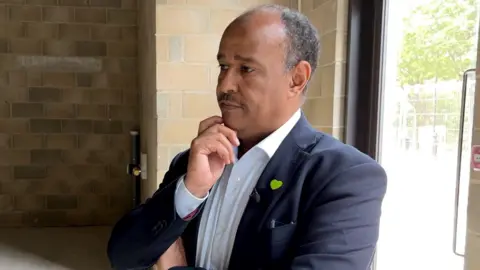
On the ground floor of a brand new council block opposite Al-Manaar, a nursery will open later this year.
It will be dedicated to the children of Hassan Hassan, one of Al-Manaar's staff members.
His wife Rania Ibrahim, 31, and daughters Fethia, four, and Hania, three, lost their lives in the fire. The nursery will be his late family’s legacy.
"Rania was a volunteer here and in fact she met her husband at Al-Manaar, they got married here so they were very much part of us," Al-Manaar manager Abdurahman Sayed said.
"Seven years later (Hassan) is still mourning and so one way of consoling him is to do something in their name."
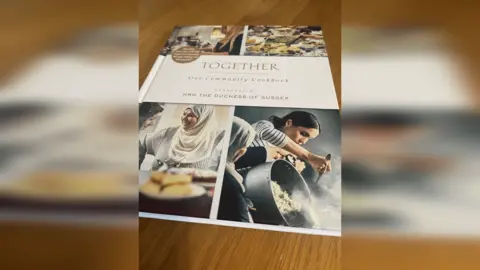
Food too is a great unifier. Up to 2,000 worshippers can be found here each week and there is always something to eat.
Food was especially important during the pandemic and now in the cost of living crisis.
It was here at the Hubb Kitchen that the Duchess of Sussex produced the cookbook "Together" with a group of women who were displaced into hotels and came to use the kitchen after the fire to make their families a home-cooked meal.
'The door is always open'
"Hubb" means "love" in Arabic.
Leila Hedgem who works at the Hubb Kitchen, cooks her Algerian-influenced dishes for the hungry after Friday prayers.
"We do cooking lessons for the children. The elderly are looked after here," she said.
"It's where people can come in and will come in if they need help. The door is always open."
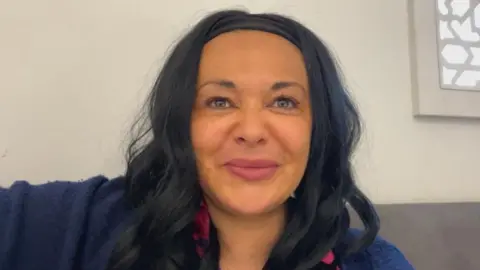
Nothing will bring the 72 residents back. As manager Abdurahman is well aware, the challenge this week for the centre, as it has been for the last seven years, will be to help people continue to come to terms with what remains.
"We do not know what will happen when the report comes out and how that will be followed up," he said.
"All we can say as a faith community, as a community, is we will stay resilient.
"After the Grenfell fire the community came together and started supporting one another.
"We will continue to do that for a long time to come."
The public inquiry into the disaster will produce its final report on Wednesday.
Listen to the best of BBC Radio London on Sounds and follow BBC London on Facebook, X and Instagram. Send your story ideas to [email protected]
